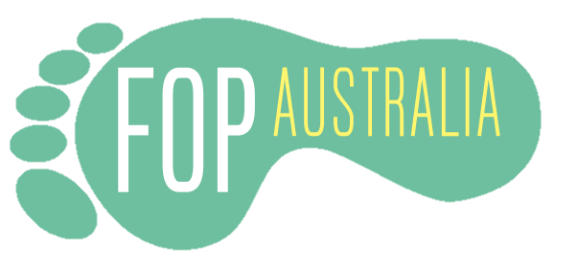In the past 30 years the international FOP community has collaborated with research groups across the globe. Because Fibrodysplasia Ossificans Progressiva is so rare, the personal contributions by people with FOP are critical to the research effort. People with FOP have generously provided blood and tissue samples and helped raise the necessary funding and awareness to sustain the research effort. Much research has been driven and supported by FOP families, their friends and their communities around the world. In keeping with our goals, donations made to FOP Australia are used to keep this vital global research effort going.
Key developments include:
- The formation of IFOPA in 1988 by Jeannie Peeper, an American lady with FOP, has enabled subsequent co-ordination of international efforts to understand and treat FOP.
- The FOP Research Laboratory was created in 1992 at in the University of Pennsylvania and led by Professor Kaplan and Dr Eileen Shore. FOP Australia are proud supporters of the ongoing work done by this lab to better understand the disease process and targets for potential treatments.
- The identification of the single gene mutation in the ACVR1 receptor causing the runaway bone growth was announced on the 23rd April 2006. This was a huge breakthrough in understanding the disease and potential pathways to treatment. This event is marked by the international community every year on April 23rd, FOP Awareness Day.
- The international patient community have driven the formation of the FOP Registry to collect the data needed to understand this disease. This was launched in 2015. FOP Australia encourage patients and clinicians to enrol in this crucial international project which will be the foundation of future research progress, with further information on how to contribute available here.
- FOP Australia support the ACT (Accelerating Cures and Treatments) for FOP Grant program. This international competitive research grant has been run by IFOPA each year since 2015 to identify and enable innovative research in to potential FOP therapies. As of 2020, this has funded 18 projects at 14 different institutions around the world, including research into 9 novel potential therapeutic agents.
- IFOPA have convened global Drug Development Forums in 2014, 2016, 2017 and 2019 to ensure collaboration between researchers maximises the potential benefit of ongoing studies. Read our report from the IFOPA/FOP Italia 2017 Drug Development Forum for more news.
- The first phase III clinical trial in FOP, assessing the efficacy and safety of palovarotene, commenced in 2016. This trial included the enrolment of patients in Australia. There are now several pharmaceutical and biotechnology companies making vital contributions to FOP research, with other clinical trials of potential FOP therapies now underway in other countries.
- A biobank was established in 2018 to make sure samples from people with FOP are used efficiently in research for maximum benefit of the community. This is especially important because opportunities to obtain blood and tissue samples from people with FOP are rare (because the disease is so rare!) but also because of the risks of triggering more bone growth and disability in any invasive procedures. So far the biobank accepts samples from people in the United States, but hopefully this will be expanded over time. IFOPA oversees this project in conjunction with academic and industry partner.
- IFOPA also co-ordinate several other programs to help the global research effort progress efficiently by encouraging collaboration and reducing duplication. This includes establishing a shared FOP mouse model (launched in 2019) and Pre-Clinical Drug Testing Program (launched in 2020).
- FOP Australia proudly support the IFOPA campaign to support gene therapy research into FOP launched in August 2020. This will add another potential avenue for development of an effective treatment.
Your support of FOP Australia will help ensure that research progresses to find an effective treatment for people living with FOP. Research into FOP also has the potential to assist many more with more common conditions. These include osteoporosis, vascular calcification, and heterotopic ossification from other causes (such as burns, hip surgery, sports and war blast injuries).
The International FOP Association (IFOPA) have information on researchers for clinicians, researchers and patients at https://www.ifopa.org/research. This includes a list of key publications, FOP Registry information, and ongoing news updates about research developments and clinical trials.
If you are interested in finding out more about FOP research, we would welcome the opportunity to discuss this with you via info@fopaustralia.org.
